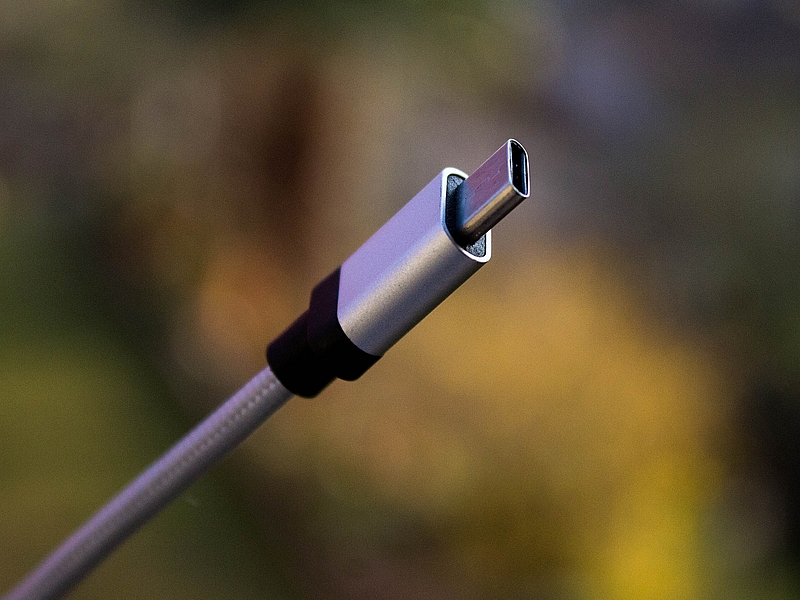- Home
- Mobiles
- Mobiles News
- You'll Soon Be Alerted If Your USB Type C Cable Is Safe to Use
You'll Soon Be Alerted If Your USB Type-C Cable Is Safe to Use

Previously we have seen few reports stating how a third-party non-compatible USB Type-C cable can fry your smartphone. However, USB Implementers Forum or the USB-IF now plans to prevent such situations with the announcement of an authentication specification.
USB-IF during the Intel Developer Forum in Shenzhen, China announced a new set of software rules in the form of USB Type-C Authentication Specification. When you club any power adapter, cable, or accessory that supports these specifications with a host device such as a laptop or a smartphone, the host device will be able to verify if the connected accessory is compatible or not and if it has been certified by USB-IF.
This authentication information is transmitted using 128-bit encryption even before the accessory starts charging the device or transferring data. The specifications will also work if the charger and cable are being used only for charging the host device.
USB-IF added that the authentication specification not only lets you know if the third-party accessory is compatible or not, but also combats malware that use USB to affect other devices. It added that the authentication specification should be easy to implement in accessories as it "references existing internationally-accepted cryptographic methods for certificate format, digital signing, hash and random number generation." As for the host devices, these specifications can be implemented in the form of a combination of software and firmware updates. However, this will depend on the OEMs.
Although the accessories that are already in the market cannot be updated with the authentication specifications, manufacturers can in future start making new ones that support the standard.
"USB is well-established as the favoured choice for connecting and charging devices," said Brad Saunders, USB 3.0 Promoter Group Chairman during the event. "In support of the growing USB Type-C ecosystem, we anticipated the need for a solution extending the integrity of the USB interface. The new USB Type-C Authentication protocol equips product OEMs with the proper tools to defend against 'bad' USB cables, devices and non-compliant USB Chargers."
Catch the latest from the Consumer Electronics Show on Gadgets 360, at our CES 2026 hub.
Related Stories
- Samsung Galaxy Unpacked 2025
- ChatGPT
- Redmi Note 14 Pro+
- iPhone 16
- Apple Vision Pro
- Oneplus 12
- OnePlus Nord CE 3 Lite 5G
- iPhone 13
- Xiaomi 14 Pro
- Oppo Find N3
- Tecno Spark Go (2023)
- Realme V30
- Best Phones Under 25000
- Samsung Galaxy S24 Series
- Cryptocurrency
- iQoo 12
- Samsung Galaxy S24 Ultra
- Giottus
- Samsung Galaxy Z Flip 5
- Apple 'Scary Fast'
- Housefull 5
- GoPro Hero 12 Black Review
- Invincible Season 2
- JioGlass
- HD Ready TV
- Laptop Under 50000
- Smartwatch Under 10000
- Latest Mobile Phones
- Compare Phones
- OnePlus Turbo 6V
- OnePlus Turbo 6
- Itel Zeno 20 Max
- OPPO Reno 15 Pro Mini 5G
- Poco M8 Pro 5G
- Motorola Signature
- Vivo Y50e 5G
- Vivo Y50s 5G
- Lenovo Yoga Slim 7x (2025)
- Lenovo Yoga Slim 7a
- Realme Pad 3
- OPPO Pad Air 5
- Xiaomi Watch 5
- Huawei Watch 10th Anniversary Edition
- Acerpure Nitro Z Series 100-inch QLED TV
- Samsung 43 Inch LED Ultra HD (4K) Smart TV (UA43UE81AFULXL)
- Asus ROG Ally
- Nintendo Switch Lite
- Haier 1.6 Ton 5 Star Inverter Split AC (HSU19G-MZAID5BN-INV)
- Haier 1.6 Ton 5 Star Inverter Split AC (HSU19G-MZAIM5BN-INV)

















